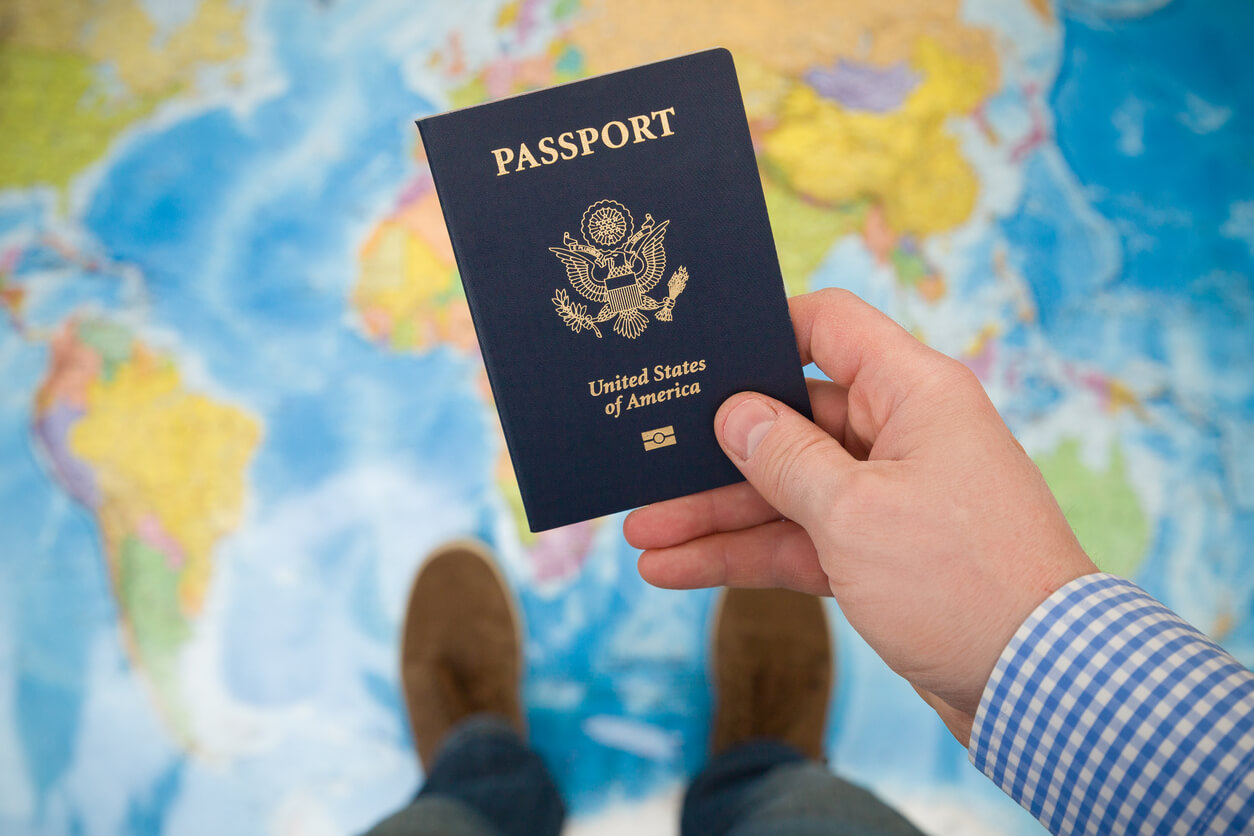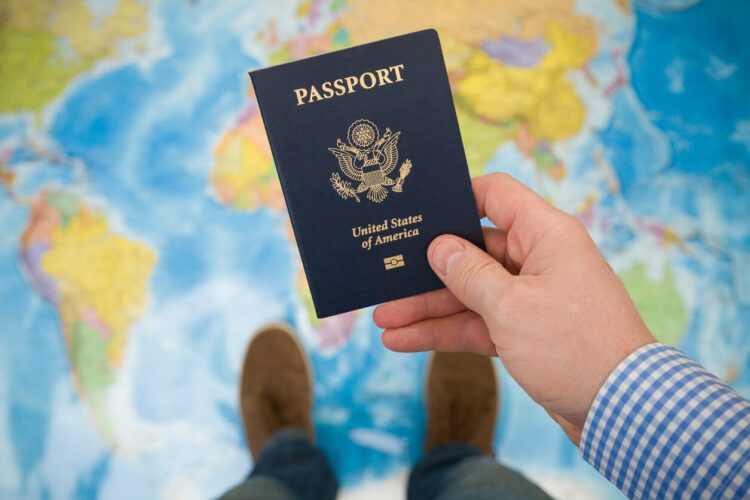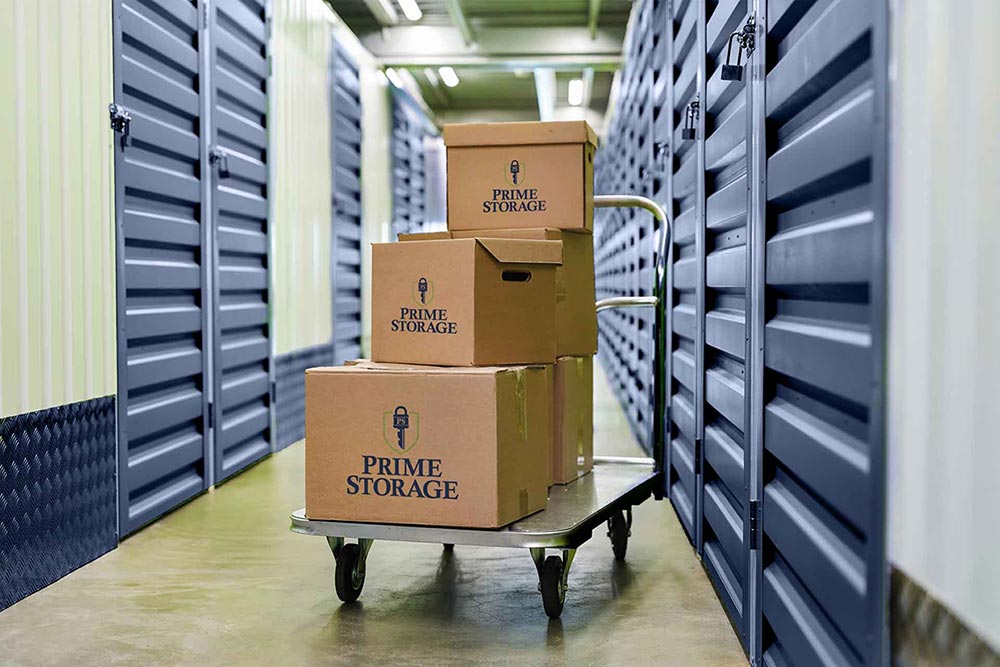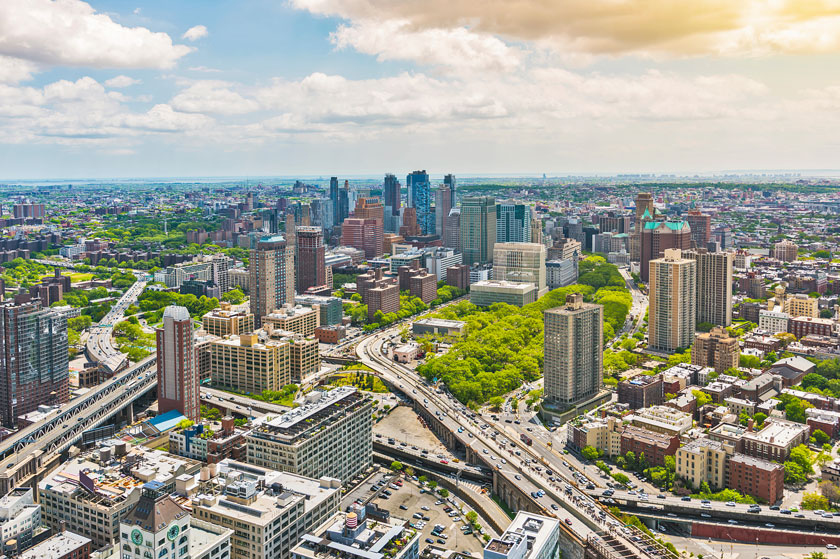Originally posted June 2021. Updated February 2023.

Moving is exciting (or strenuous) enough when going just one state over, but moving abroad is a whole other level! Whether it’s for school, military deployment or relocation, or a need to mix up the status quo and change your surroundings, there are a lot of preparations to make for your upcoming long-distance travels. If you’re ready to take the leap, let Prime Storage provide you with storage solutions and advice on how to make the process go more smoothly.
1. Study the culture of your destination country.
In an ideal world, you’d get to visit the place you’re moving to in advance, but life doesn’t always work out that way. The last thing you want is to be blindsided by culture shock. At best, you’ll be lost or confused; at worst, you could risk upsetting your new neighbors or breaking a law you weren’t aware of. Furthermore, no matter where you’re going, they’re likely to have at least a handful of major qualifying differences you should know upon arrival. At the same time, other cultural nuances will become known as you go. As a result, it’s essential to research as much as possible ahead of time and avoid being taken by surprise.
Whatever happens, don’t panic if you don’t immediately feel settled after your move. There will be an adjustment period where it’ll feel like you’re flailing a bit. You may even have an opportunity to learn a new language to engage in certain activities properly, so expect that to take time. Most importantly, be open-minded. If you haven’t traveled much, this could be a life-changing experience, as long as you stay aware that you are a stranger in their land, not the other way around.
2. Start saving for your move.
Moving is expensive, much less packing up and moving to another country. In general, moving can accrue costs for housing deposits, closing costs, homeowners or renters insurance, a lawyer, movers, etc. Add in the international factor, and you now also need to consider transportation, the exchange rate, a new cost of living, and documentation, like your visa or passport. So, it’s important to budget and save up as much money as you can before the move. Ever heard the advice to have six months’ worth of savings prepared? This is where it comes in handy.
If you’re moving for work, negotiate relocation expenses with your employer. Oftentimes, a company with a relocation package benefit will cover some of the associated moving costs, like transportation, moving services, and mover’s insurance. While you’ll need to look into precisely what your company will and will not cover, it’ll be much easier to budget if not all expenses fall on you.
3. Renew your passport and secure your visa early.
Before applying for a visa, you need a valid passport. So, make sure yours is up-to-date prior to even booking your ticket and is good at least six months past your travel date. You’ll also want to make sure to complete this step early, as standard passport processing times can vary anywhere from six to nine weeks, according to the U.S. Department of State. This process can be slightly expedited at an additional fee if your travel date is within 14 calendar days.
There are several types of visas, and some countries require you to have a travel visa to enter, so it’s vital to plan ahead on this matter. For example, depending on your reason for travel, you may need to obtain a work visa, or you may need to apply for a visa as a student if you’re studying abroad. There are a lot of details that go into the visa process, so depending on your income level, household occupancy, job type, and intended destination, the minutia is subject to change. It is, however, something you should always plan to have in advance. In addition, almost all visas have some type of deadline, so you should plan accordingly.

4. Research healthcare options.
Healthcare varies from place to place, and what you have now might not be the same where you’re going. However, you don’t want to find yourself in a pinch after moving and not have access to health insurance. Ensure you thoroughly research the options in your new country, as well as what’s available to you, depending on what type of visa you have. You can also look into whether your current healthcare provider will offer you coverage abroad.
Another critical step is to request your medical records and ensure all your immunizations are up to date. Some countries may require different immunizations, so make sure you do your research and schedule any necessary appointments ahead of time. It’s also a good idea to double-check any prescriptions you have so you know whether they are available and accessible or not where you’re going. Again, planning ahead can allow you the necessary time to stock up or find an alternative if needed.
5. Get your affairs in order.
Not as grim as it sounds, we promise. But there are several smaller steps you’ll need to take into account before the big move. Some of which include the following:
- Notify your bank – make sure your current bank and any credit card companies are aware of your move, so your accounts aren’t frozen. You may also want to consider an international credit card to avoid foreign transaction fees.
- Update your phone plan – avoid costly international fees by having your provider unlock your phone. You can then purchase a new sim card to keep using your phone locally after you move.
- Make copies of all your important documents. This includes your passport, license, birth certificate, etc. You can either make physical copies or store them digitally in a secure location.
- And say goodbye to loved ones. This step can take the most time, depending on the size of your social circle and schedule, but it is invaluable. So, enjoy those farewell brunches, happy hours, and game nights leading up to your move, and maybe make plans for them to visit after you’re settled.

6. Find a place to store your car.
Depending on how long you intend to be gone, you may want to consider long-term storage for your vehicle. For example, if you’re permanently emigrating to another country, you’ll probably sell your vehicle. For temporary relocation, however, you’ll want to find a space to semi-permanently park your car.
This is useful because it means that when you return to the States, you’ll have a vehicle available without needing to rent one for the duration of your stay. If you’re leaving for an extended period, consider covered vehicle storage that can provide protection from the elements. So, no matter how long you go in-between visits, your car will be in great shape.
7. Rent a self storage unit to simplify your move.
Whether you’re a military family spending a few years abroad or are relocating for an exciting new career opportunity, moving to another country is a unique experience. But if you are worried about packing or storing all your belongings when you move abroad, we can help!
Prime Storage offers convenient, affordable self storage solutions that can accommodate a variety of needs. With over 200 locations nationwide, chances are there’s a Prime Storage not too far from home. To get started on your storage journey, visit a facility near you or rent your storage unit online.






